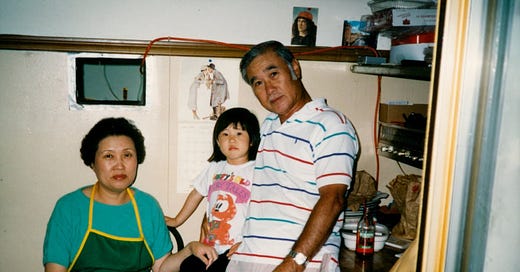On cooking and death
"If she eats," we thought, "that’s a good sign. If she eats, it means she still has energy to fight. If she just keeps eating, maybe she won’t die."
Dear friends,
It’s been quiet around here for the last few weeks, and I wanted to share why. I lost my grandmother last week after a short and unexpected decline. She spent her last few days on this earth surrounded by her family, as comfortable as she could have been given the circumstances. I feel enormously grateful for the privilege of saying goodbye while holding her warm hands. She was my last living grandparent, the one I was closest to. Her sudden loss has left me wading through grief that is both complex and banal.
In her last few days, I could not compute how she could still be alive when she had completely stopped eating, even as I logically understood that this was a natural response to a body that increasingly no longer had a need for fuel. My mother would judge the days based on how much my grandmother ate, her spirits freshly buoyed on days when my grandmother could manage a few spoonfuls of jook. If she eats, we thought, that’s a good sign. If she eats, it means she still has energy to fight. If she just keeps eating, maybe she won’t die.
Eating is an activity of the living. We can understand it for the same reasons we cannot understand death. We eat for strength, we eat for nourishment, we eat to live. Knowing how we feel in our own bodies after going a period without food, we cannot help but panic when we witness a prolonged absence of eating.





